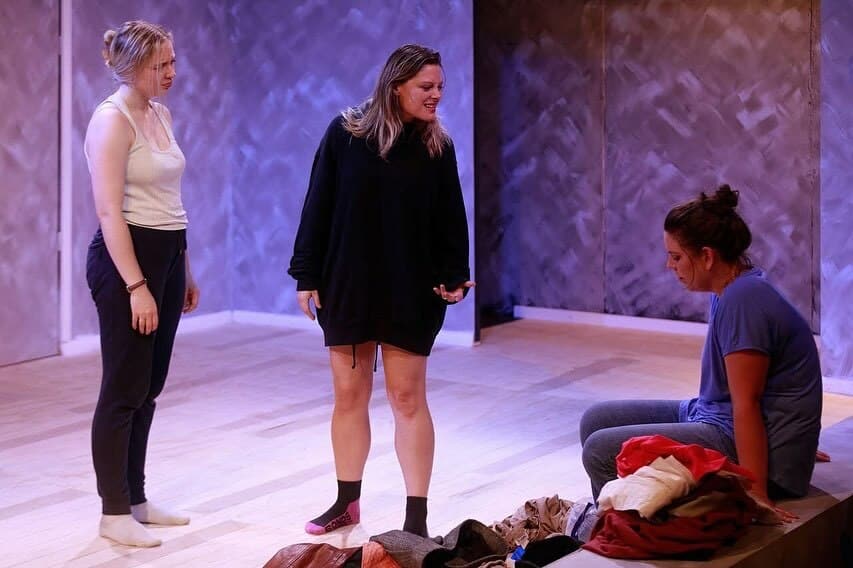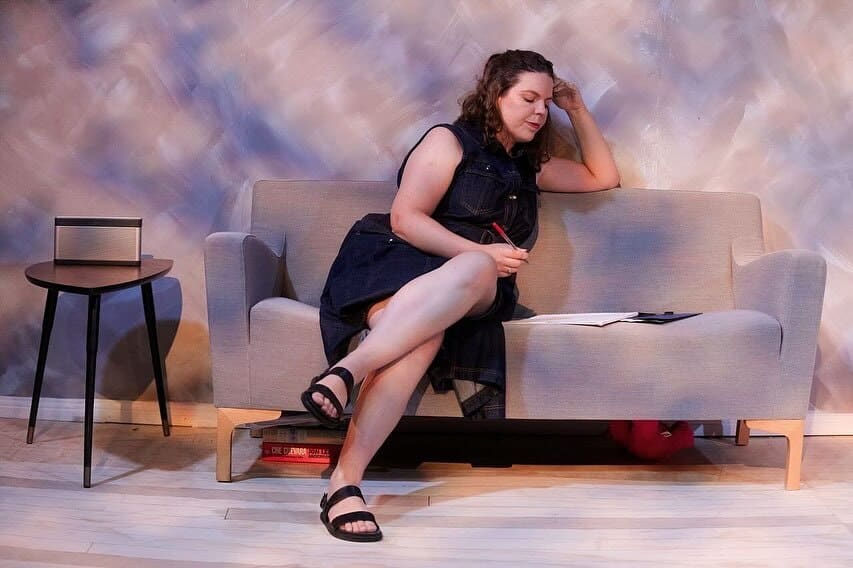Between Past and Present: A Slow-Burn to Nowhere
Click here if you liked this article 0 ![]()
Date Reviewed: 09/02/2025
If procrastination were an art form, the Prozorov sisters would be its masters. Their existential crisis is a painful blend of paralysing indecision and brutal self-reproach—an expression of how exasperating people become when deprived of a meaningful purpose. How many of us hover in limbo, caught between desire and action, never quite taking the leap?
Olga, Masha, and Irina, three sisters trapped in a small town, yearn for the excitement and fulfilment they believe awaits them in Moscow. As they navigate their personal crises, unfulfilled desires, and complex relationships, their dreams remain elusive. Chekhov’s audiences either revel in his brilliance, grow frustrated by the lack of resolution, or sit bewildered- precisely his point.
Any rewrite of Three Sisters is a formidable feat, one that few would dare take on, as its success hinges entirely on execution. Modernising a classic is a delicate balance between reinvention and irrelevance—remove too much of its original context, and you risk transforming a masterpiece into a hollow echo of its former self.
Writer/Director Victor Kalka’s takes on both challenges with Three Sisters at the Flight Path Theatre. He offers an almost claustrophobic platform, where every moment of inaction feels magnified and impossible to escape. The setting is intentionally unclear, blending past and present elements with a mishmash of creative confusion. No choice is fully realised, leaving the audience adrift, unsure where to anchor an emotional or intellectual connection. Chekhov loyalists may find it frustrating, but not in a Chekhovian way.
Three Sisters is deeply rooted in themes of societal constraints, particularly on women, but without the cultural context of Chekhov’s time, their longing for Moscow feels more like reluctance than tragedy. The Russian references remain, yet it feels distinctly un-Russian, as the cast all speak with Aussie accents and engage in very Aussie behaviours. More like a warped, self-flagellating version of Don’s Party, where personal crises and relationship breakdowns unfold amidst a backdrop of awkwardness and denial.


So, while Kalka offers a fresh perspective and some compelling tension, the conundrum ultimately falls short in achieving continuity and a cohesive identity, blurring its sense of direction. A few striking examples of dissonance is the use of Boney M’s ‘Moscow’. The upbeat, disco rhythm playing before the show and during the bows clashes with the quiet desperation of the characters. Plot points are also muddied, such as Olga having the freedom to be financially independent and be a school principal, yet the doctor kills someone by prescribing the wrong medication and faces no legal consequences, highlighting the inconsistency in tone and conflict. As a result, the themes of longing and discontent fail to establish any hard stakes or resonate effectively, diluting the emotional core of the story.
Still, the cast manages to engage with the material with conviction, conveying the emotional exhaustion and deep dissatisfaction of the characters. While not every performance stands out equally, several actors capture the depth and nuance of their roles with skill.
Meg Bennetts, Nicola Denton, and Sarah Greenwood bring a steady, understated energy to the sisters, slowly building the quiet tensions and unspoken desires that define them. Greenwood’s scenes with an intense Alex Bryant-Smith are particularly compelling, producing the most emotional resonance, their chemistry grounding the performance.
Matthew Abotomey as the sisters’ hapless brother Andrei, makes the character likeable, despite some brutally honest lines, finding a way to be relatable. Joseph Tanti, as Irina’s suitor, brings warmth and subtle charm to what could otherwise be a passive role, creating a welcome contrast to the otherwise fraught atmosphere.
Set in a time far removed from 1901 Russia, where women can self-actualise beyond marriage or spinsterhood, we’re ultimately left wondering why the sisters persist in self-loathing and entrapment instead of embracing self-examination. The absence of clear obstacles creates a disconnect, ironically mirroring the sisters’ doubt and lack of coherence. In Chekhov’s original, they’re trapped by both societal expectations and their own emotional paralysis – a defining characteristic of their struggle that feels unfounded here, where social pressures are now largely absent.
The key to a modern adaptation is balancing fidelity to the original with a fresh lens that reveals its enduring relevance. Yet, this production’s purpose gets lost in translation. Perhaps that was Kalka’s intent, but if so, it doesn’t quite reach Moscow.
See https://www.flightpaththeatre.org/whats-on/three-sisters for further details
This review also appears on Whats The Show, Facebook, and Instagram